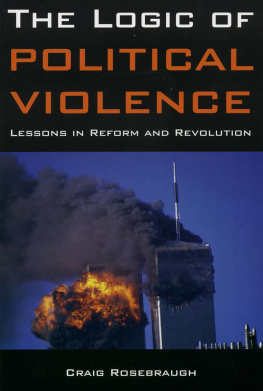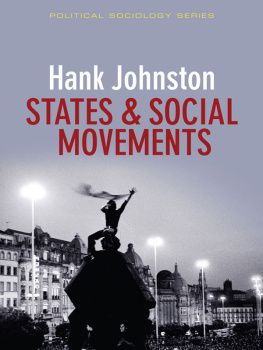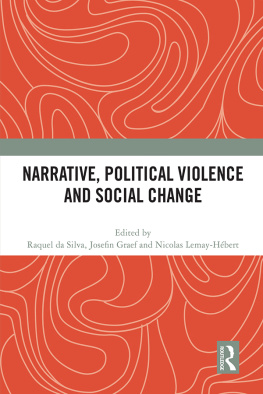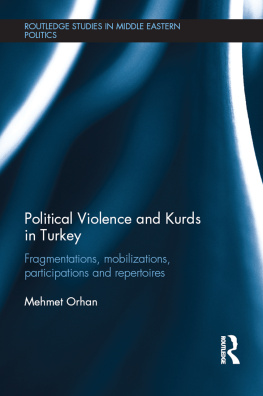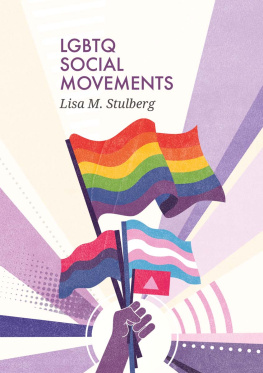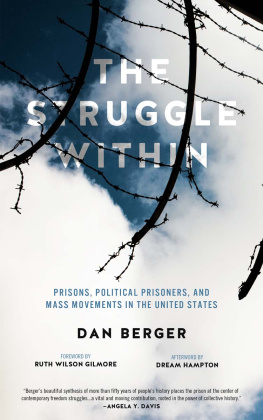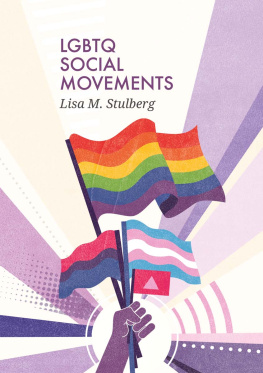THE LOGIC OF POLITICAL VIOLENCE
Copyright 2004 by Craig Rosebraugh
All rights reserved. No part of this book may be reproduced, stored in a retrieval system, or transmitted, in any form or by any means, electronic, mechanical, photocopying, microfilming, recording, or otherwise, without written permission from the author and publisher. For more information address:
Arissa Media Group
P.O. Box 6058
Portland, Oregon 97228
Tel: (503) 972-1143
http://www.arissamediagroup.com
Printed and bound in the United States of America.
First Edition, 2004.
Library of Congress Control Number: 2003096953
International Standard Book Number: 0-9742884-1-1
Cover design and illustrations by Matthew Haggett.
Arissa Media Group, LLC was formed in 2003 to assist in building a revolutionary consciousness in the United States of America. For more information, bulk requests, catalogue listings, submission guidelines, or media inquiries please contact Arissa Media Group, LLC, P.O. Box 6058, Portland, Oregon 97228. Tel: (503) 972-1143
Introduction
I was first introduced to the idea of nonviolence while attending a community college in Portland, Oregon in the early 1990s. Contained within a class on peace and conflict studies was a segment on nonviolence, particularly as practiced by Gandhi during the Indian civil rights issues in South Africa and the independence movement in India. The class instructor was extremely energetic and obviously motivated by his own personal beliefs to promote Gandhi in the best light possible. I instantly became intrigued and developed a new found respect for the legendary man in the loincloth.
My studies during this period were limited largely to one biography of Gandhi, written by Louis Fischer, assigned by the class instructor. In this book, I learned the basics of Gandhis personal and political life, and his thoughts and practices of nonviolence. Although I was admittedly excited and inspired by this brief glimpse into Gandhis life, my thoughts and studies of nonviolence ended there, at least for a few years.
As a scholar and political activist living and trying to make positive changes in the United States I was immediately struck by state-sponsored guidance telling me how to act. From day one of my involvement many years ago through to this day I have heard that if one desires to pursue social and/or political change in this country there are correct and proper methodologies in place to make these pursuits a reality. After all, this is a democracy, one that boasts itself as the freest land in all the world. If the people truly aim to change societal laws and norms, by God that is their right and there are proper channels to go through to ensure success. All social and political change in the United States has come about this way, I have been constantly told.
As a young activist I quickly learned what these rules were that were time tested and thus would ensure success. The rules of the game are as follows:
RULES FOR THE GAME OF SOCIAL AND POLITICAL CHANGE IN THE UNITED STATES OF AMERICA
- You have the right to pursue social and political change as long as you follow the rules below.
- All social and political change in the United States has come about ONLY through nonviolent methodologies and these are the ONLY methods which are permitted to be used.
- With few exceptions, all activity must stay within the realm of behavior which is sanctioned or approved by the government. This directly relates to engaging in activities which are lawful and thus permitted by the government.
- One rare exception to rule #3 has been the occasional use of nonviolent civil disobedience when unjust laws were broken for the greater good of society. While it is doubtful any unjust laws exist within the United States in current times, if an individual did decide to commit an unlawful act of nonviolent civil disobedience, he or she must be prepared to submit to all penalties under the law resulting from this behavior.
*Note to #4: On the extremely rare occasion when one may decide that a law is unjust and therefore should be broken, it is best to coordinate this activity with the local, state, or federal policing forces to ensure safety for the participants and the general public.
- You have the right to pursue social and political change as long as you follow the rules above.
As I personally became active in anti-war protests and animal rights issues in the early 1990s, nonviolence was a recurring theme, and I began to expose myself to the subject a bit further. At that time I began to learn the philosophy of incorporating a universal application of compassion towards all and the idea of the circle of life, that all beings on this planet are connected and interrelated. For these reasons, I then adopted a strict vegetarian diet attempting to follow the idea that one should make every effort to walk as lightly on the earth as possible for a minimum destructive presence.
A couple of years later, while attending Marylhurst University in the Portland area, I enrolled in a specialized study course focused entirely on Gandhi and his nonviolence perspective. This is where my interest in the practical capabilities of nonviolence blossomed. Like my community college instructor, my professor at Marylhurst was equally, if not more, adhered to a sound support and promotion of Gandhi and his nonviolence principles. The professor considered the Gandhian philosophy to be an unstoppable force that could change the world. I began to be sold on the idea.
After reading many other books by Gandhi, King, Thoreau, and others, on the philosophy of nonviolence, I began to see the need to include this practice into my personal attempts to pursue social justice. As Gandhi had done countless times with the burning of passbooks in South Africa to the Salt March and fasting in Indiato name just a few examples I began to engage in active nonviolence, in the form of civil disobedience, to further progress the struggles for justice I was pursuing.
It felt good. Here I was, a white young man from a middle class background, risking my freedom for the good of society. As my arrest record grew, I increasingly became noticed and respected within the self-described militant activist circles, particularly those which also promoted and engaged in civil disobedience. I became so convinced of the potentiality of nonviolence as a means for achieving revolutionary change that I felt compelled to further study the subject. Soon I began to teach the philosophy in activist workshops, conferences, and even in some high schools, colleges, and universities where I was invited to guest lecture.

